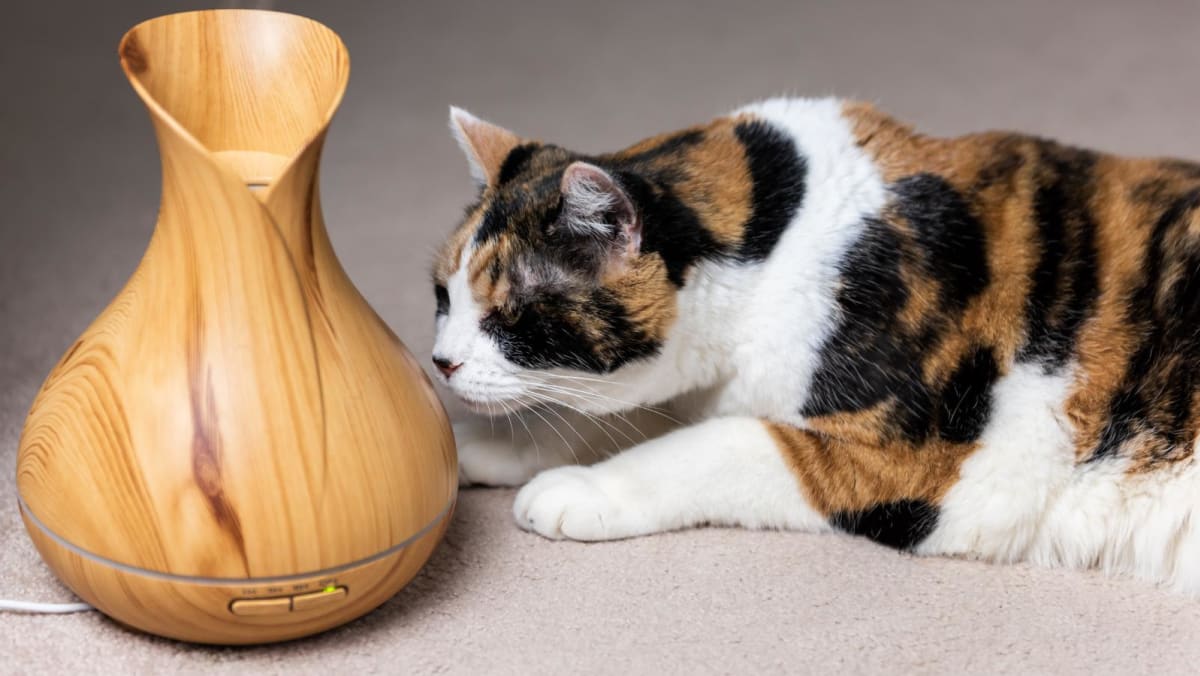It’s not only scented candles. What are also known to poison cats include essential oils of sweet birch, citrus, pine, ylang ylang, peppermint, cinnamon, clove, eucalyptus and tea tree. And since we aren’t sure of any feline-friendly essential oils, it is best not to burn, diffuse, spray or vaporise any in their environment, advised Dr Tong.
Typically, cats come into contact with essential oils through respiration, she said. When breathed in, the vapours can irritate their respiratory tract and may cause respiratory issues or distress. Essential oil vapours can also land on the cat’s coat and get ingested during self-grooming, she added. Cats lack an enzyme in their liver and cannot metabolise essential oils.
Signs that your cat needs the vet’s attention right away include a watery nose or eyes, drooling and/or vomiting, and difficulty breathing, said Dr Tong. “Difficulty in breathing in a cat is evidenced by laboured breathing, fast breathing, panting, coughing or wheezing.”
BLEACH
Some cats seem to get high on bleach. How else do you explain the compulsive rubbing, sniffing, purring and rolling on any surface that has been wiped with the strong-smelling disinfectant?
As it turns out, chlorine is also present in the pheromones produced by your feline companion to mark a territory, or signal to a potential mate or familiar cat. “The behaviour may be due to the chlorine odour in bleach as the smell may induce a similar response to pheromones in your cat,” said Dr Tong.













